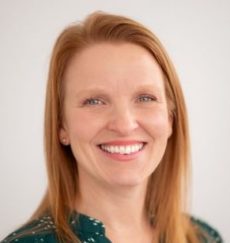
With all the vaccine mandate news coming out over the last few days, it might be easy to skim right over the announcement made by the Department of Veterans Affairs on Monday.
But coming from the first federal agency to require COVID-19 inoculation, this is one to watch.
Will hundreds of doctors, nurses, physicians assistants and other direct care providers in VA medical facilities abruptly walk away from their jobs and handsome federal benefits when the requirement becomes effective in eight weeks? I highly doubt it.
Sure, the power of its perks probably makes the government’s move to protect VA beneficiaries a little less complicated than it might be for small, cash-strapped providers already struggling to keep workers.
But aside from possibly being able to entice workers to stay, the situational data informing the VA’s decision looks much the same as it does for other providers of skilled nursing care in the U.S.
The agency was tracking 326 active cases of COVID-19 among its employees and 3,878 total cases among veterans, including inpatients, as of Monday, per the Federal News Network. And nearly 150 VA healthcare workers already died due to complications from COVID-19.
“We’re mandating vaccines for Title 38 employees because it’s the best way to keep veterans safe, especially as the delta variant spreads across the country,” VA Secretary Denis McDonough said in announcing the mandate. “Whenever a veteran or VA employee sets foot in a VA facility, they deserve to know that we have done everything in our power to protect them from COVID-19. With this mandate, we can once again make — and keep — that fundamental promise.”
Even the VA couldn’t kindly convince enough of its staff to get the COVID-19 vaccines, despite competitive salaries, health coverage and retirement packages. At all too-many non-government facilities, those benefits aren’t even a factor. In both situations, however, mandates will lead to greater vaccine coverage.
A losing scenario?
No doubt some workers (and not a ton of them, I predict) will quit for a new job where they don’t have to get vaccinated to draw a check. Fortunately for patients, finding that kind of job in healthcare is becoming harder.
Seniors and other patients deserve the opportunity to feel safe in a healthcare setting, all the more so if that healthcare setting doubles as their home. Providers shouldn’t still be kowtowing to workers who don’t want to contribute to that physical and emotional security. After doing the cost-benefit analysis, more providers have realized losing employees willing to risk their own health and that of others isn’t truly a losing scenario.
They know the vaccine itself isn’t failing. It has created what little breathing room we’ve had in this country, even as mitigation measures are coming back into play. Those impositions are necessary because we allowed a variant time to develop and spread among the 57.5% of the population over age 12 that remains unvaccinated.
And yes, boosters might eventually be needed for early shot-takers. That’s still not an indication of failure or even poor efficacy; it’s a sign that science is doing its best to keep up with the contagion we have caused.
What has clearly failed are extensive and well-intentioned efforts to beg and bribe more employees into vaccinations. I’m glad to see that, finally, industry leaders — including those at the VA — are giving their people some tough love.
Among them is LeadingAge President and CEO Katie Smith Sloan, who this week delivered a killer comeback for all those still yammering on that this is a free country, and people have a choice whether to be vaccinated or not.
“No one is forcing anyone to get vaccinated,” she told McKnight’s, and by extension, workers at the 5,000-plus organizations she represents. “Employees have a choice. If the employee chooses not to be vaccinated, the employee is encouraged to seek employment elsewhere, where they will not be working closely with and potentially endangering the lives of a population most vulnerable to severe illness and death as a result of COVID-19.”
Kimberly Marselas is senior editor of McKnight’s Long-Term Care News.
The opinions expressed in McKnight’s Long-Term Care News columns are not necessarily those of McKnight’s.




